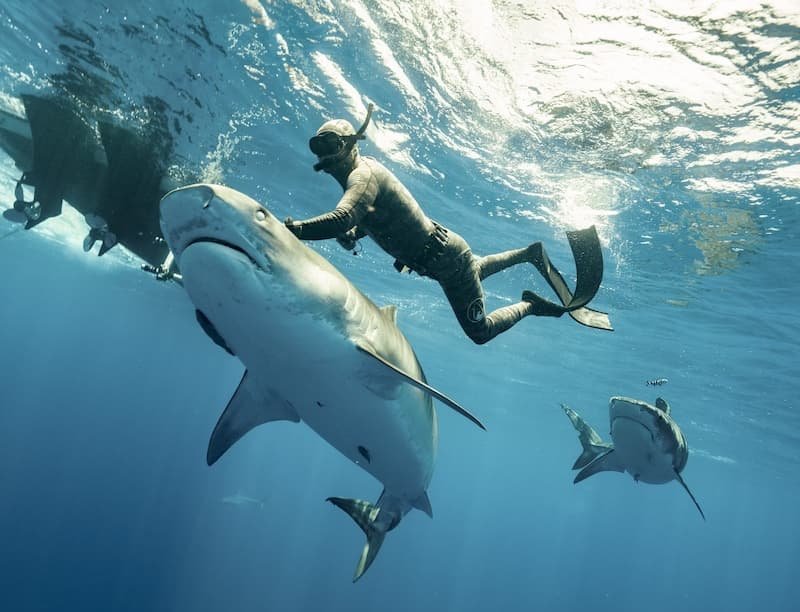
 Roni Essex
Freediver, Spearo, Creator
Roni Essex
Freediver, Spearo, Creator

 Roni Essex
Freediver, Spearo, Creator
Roni Essex
Freediver, Spearo, Creator
Sharks, apex predators of the marine realm, often evoke fear and trepidation in the minds of many. While they play a crucial role in maintaining the balance of marine ecosystems, their encounters with humans can be fraught with danger. Misidentification, rather than aggression, is often the cause of shark attacks, particularly when humans resemble their natural prey, such as seals or sea turtles.
The recent tragic incident off the coast of the Bahamas, where a 44-year-old Boston newlywed was fatally attacked by a shark while paddleboarding with her husband, serves as a stark reminder of the risks associated with human-shark interactions. This event, the second shark attack in the Bahamas within two weeks, highlights the importance of caution when engaging in activities in the vicinity of these marine creatures.
A tragic incident unfolded off the coast of the Bahamas on Monday when a 44-year-old Boston newlywed was fatally attacked by a shark while paddleboarding with her husband. The incident occurred at around 11:15 AM near the Sandals Royal Bahamian resort beach. A vigilant lifeguard on duty witnessed the attack and swiftly sprang into action, leaping into the water to rescue the distressed couple. Despite their heroic efforts, the woman succumbed to her injuries and was pronounced dead at the scene.

The victim's identity has been released, and local reports suggest that she had recently tied the knot, and the man paddleboarding with her was her groom. Police have yet to confirm the type of shark involved, but the occurrence marks the second shark attack in the Bahamas within a two-week period. On November 21, a 47-year-old German woman vanished while diving near West End, Grand Bahama, after an encounter with a shark. Her body has yet to be recovered.
Globally, shark attacks remain relatively infrequent, with 57 unprovoked bites reported in 2022. Florida led the count with 16 incidents, but fortunately, no fatalities were recorded. Most other attacks occurred in the United States and Australia.

Experts attribute the decline in shark attack fatalities to a combination of factors, including reduced shark populations and the implementation of stricter beach safety protocols. Gavin Naylor, director of the Florida Program for Shark Research, highlights the importance of these measures: "Areas that have recently implemented rigorous beach safety protocols, especially in Australia, have seen a decrease in fatalities." However, Naylor warns that sharks may sometimes mistake humans for their prey, particularly in environments with abundant fish and low visibility. He emphasizes the need for vigilance and caution when interacting with these marine predators.